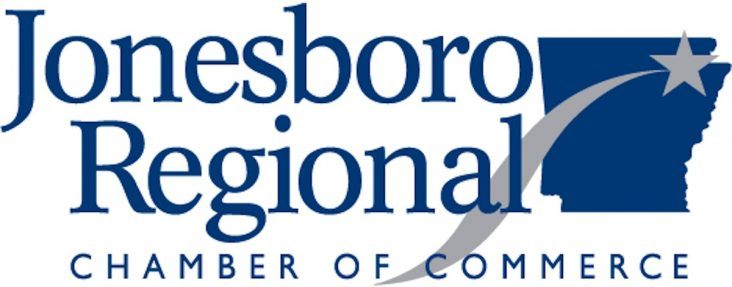Jonesboro Regional Chamber of Commerce targets specific sectors to lure job creators
by August 2, 2016 10:18 am 220 views

The Jonesboro metro area has enjoyed historically low unemployment during the last two years, but city leaders knew wage stagnation was a problem, and there was a need to be proactive in creating new job opportunities.
Five job creating sectors – agriculture business, healthcare, logistics, manufacturing, and professional services – were identified as the best sectors to target for the region, Chamber President Mark Young told Talk Business & Politics. The organization embarked on a five year plan in January to market the city and surrounding areas to companies in these sectors, he said.
“Targeting specific industrial sectors is highly effective,” Young said.
This plan is in its infancy, and it’s hard to judge how effective it will be, but this approach has worked in the past. More than a decade ago, the city targeted food processing plants, and that led to a boom in that sector in the area, he said.
Indeed, the region has seen job growth in the past five years. The number of employed in May – the most recent available labor market data – in the Jonesboro metro was 60,556, a gain of 6,198 jobs, or 11.3%, compared to May 2011. The region’s labor force totaled 62,560 in May, up 5.5% compared to May 2011. The May jobless rate was 3.2%, much better than the 8% in May 2011.
DEVELOPING THE PLAN
A Texas consulting company, Avalanche Consulting, was hired and at least 2,000 people were contacted through interviews, focus groups, and surveys and information was gleaned from them. A marketing plan was formed, and ways to pitch the area were developed, he said.
Since the plan’s inception, no major prospect has moved into the region, but several local businesses, such as Hytrol and FHM Conveyors, have expanded. Hytrol now has more than 1,000 employees and recently hired a slew of welders to meet high demands. FHM Conveyors is undergoing an expansion and will employ 110 more workers once that’s completed, Young said.
Agriculture business includes all phases of that sector, Young said. Not only will it target farming related industries, it will also target research and development companies. Logistics was included because the area has a lot of transportation services, and highway improvements on Arkansas 226, U.S. 67 and the designation of Interstate 555 will enhance the area’s appeal in that sector, Young said.
Jonesboro has long been the hub city in Northeast Arkansas. Residents from the surrounding region come to the city to shop, work, entertain themselves, and for other reasons.
One of the most significant reasons people flock to the city is healthcare. With two massive hospitals, a myriad of medical clinics and doctors, and other medical-related services, targeting this sector was a no brainer, Young said. Manufacturing jobs are always held at a premium in any community, and that was an easy call, he said. As these other sectors grow, professional services will expand as well, he said.
RAISING INCOMES
One of the primary reasons the plan was implemented was to raise median income in the Jonesboro metro. The city has a median income of just over $42,000, slightly lower than some other similar sized metros in the state, according to numbers released.
Another issue all communities across the country face is workforce education and retention, another realm on which the chamber is focused, Young said. Arkansas State University expanded its offerings in recent years and is a critical tool in the region’s economic success, he added.
The new osteopathic medical school at ASU will open in a few weeks, and that will bring more students to the area, and it will also allow those college students from here, who want to attend medical school, to stay here, he said.
Two convention centers are planned, and that could also be a boon to the local economy in the coming year, Young said.
Developing these jobs sectors through this targeting plan will be his organization’s primary goal in the near future, Young said. Other job sectors will also be examined, but the focus will remain on these five, he said.
“We have a lot to accomplish with our plan,” he said.
